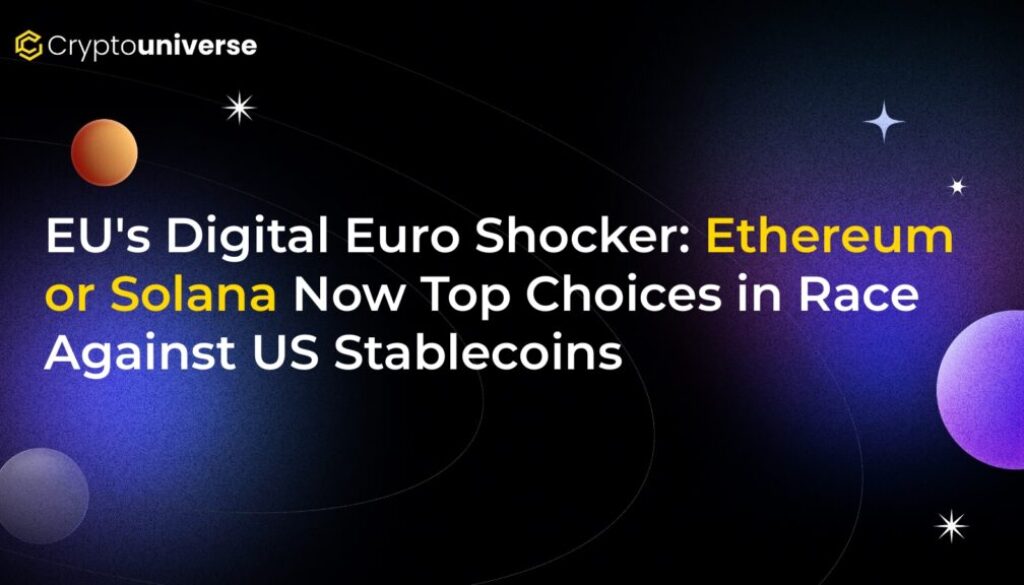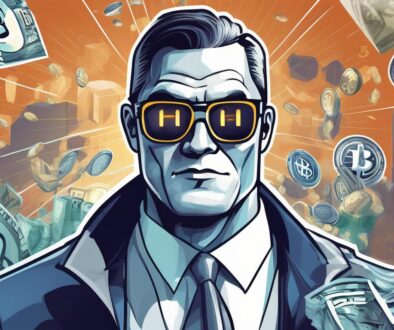EU’s Digital Euro Shocker: Ethereum or Solana Now Top Choices in Race Against US Stablecoins

A Major Pivot in Europe’s Digital Currency Strategy
In a move that has sent ripples across the financial and crypto worlds, European Union officials are reportedly fast-tracking the development of a digital euro. More surprisingly, they are considering a radical departure from their original plans, now weighing public blockchains like Ethereum or Solana as the foundational technology. This strategic pivot is seen as a direct response to new legislation in the United States that provides legal clarity for dollar-backed stablecoins, sparking fears in Brussels of falling behind in the global digital payments race.
The American Catalyst: A New Sense of Urgency
The catalyst for this sudden acceleration is the recent enactment of the “Genius Act” in the United States. This landmark law establishes a clear regulatory framework for stablecoins pegged to the U.S. dollar. European policymakers are concerned that this will give dollar-based tokens a significant first-mover advantage, potentially cementing the dollar’s dominance in the digital age and undermining the euro’s global competitiveness.
Faced with the prospect of a world running on dollar-denominated digital assets, the European Central Bank (ECB) has been forced into a strategic rethink. The goal is no longer just to create a digital currency but to launch one that can compete effectively and immediately on the global stage.
Public vs. Private: Why the EU is Considering a Game-Changing Shift
Until now, the ECB’s multi-year exploration of a Central Bank Digital Currency (CBDC) has focused on creating a private, permissioned ledger. This approach would offer maximum control over the network and user data, aligning with traditional central banking principles of stability and privacy. However, building such a system from scratch is a slow, complex, and costly process.
The new proposal to build the
- Speed to Market: Leveraging an existing, battle-tested public blockchain could dramatically shorten the development and launch timeline for the digital euro.
- Instant Interoperability: A digital euro on Ethereum or Solana would be instantly compatible with the vast, existing ecosystem of decentralized finance (DeFi) applications, digital wallets, and exchanges. This removes a massive barrier to adoption.
- Innovation and Network Effects: Building on an open platform allows for permissionless innovation, enabling developers worldwide to create new financial products and services around the digital euro.
- Lower Development Costs: Instead of building the entire infrastructure from the ground up, the ECB could utilize the security and functionality of established networks.
This potential move away from a closed system signifies a growing acknowledgment that the future of finance may be interoperable and built on open standards.
Ethereum or Solana: The Top Contenders
The fact that Ethereum and Solana are the two blockchains specifically named is significant. They represent two of the leading but distinct approaches to building a global, decentralized computer.
Ethereum ($ETH): As the original smart contract platform, Ethereum boasts the largest network, the most liquidity, and the most extensive developer community. Its security and decentralization are considered top-tier, making it a robust choice for hosting a currency as critical as the euro. While historically facing scalability challenges, recent upgrades are actively addressing these issues.
Solana ($SOL): Known for its incredible transaction speed and low costs, Solana is built for high-performance applications. It offers a scalable infrastructure that could potentially handle the massive transaction volume required by a continent-wide digital currency, making it a compelling alternative.
A Watershed Moment for Blockchain Adoption
While officials have emphasized that no final decision has been made, the very consideration of using a public blockchain for a major CBDC is a landmark event. For years, the crypto space has worked to prove the viability and security of public networks. A move like this from the European Union would be the ultimate validation.
It signals a major convergence between the worlds of traditional finance (TradFi) and decentralized technology. If the EU proceeds, it could set a powerful precedent for other nations exploring their own digital currencies. The race for the future of money is heating up, and it looks increasingly likely that it will be fought on-chain.


